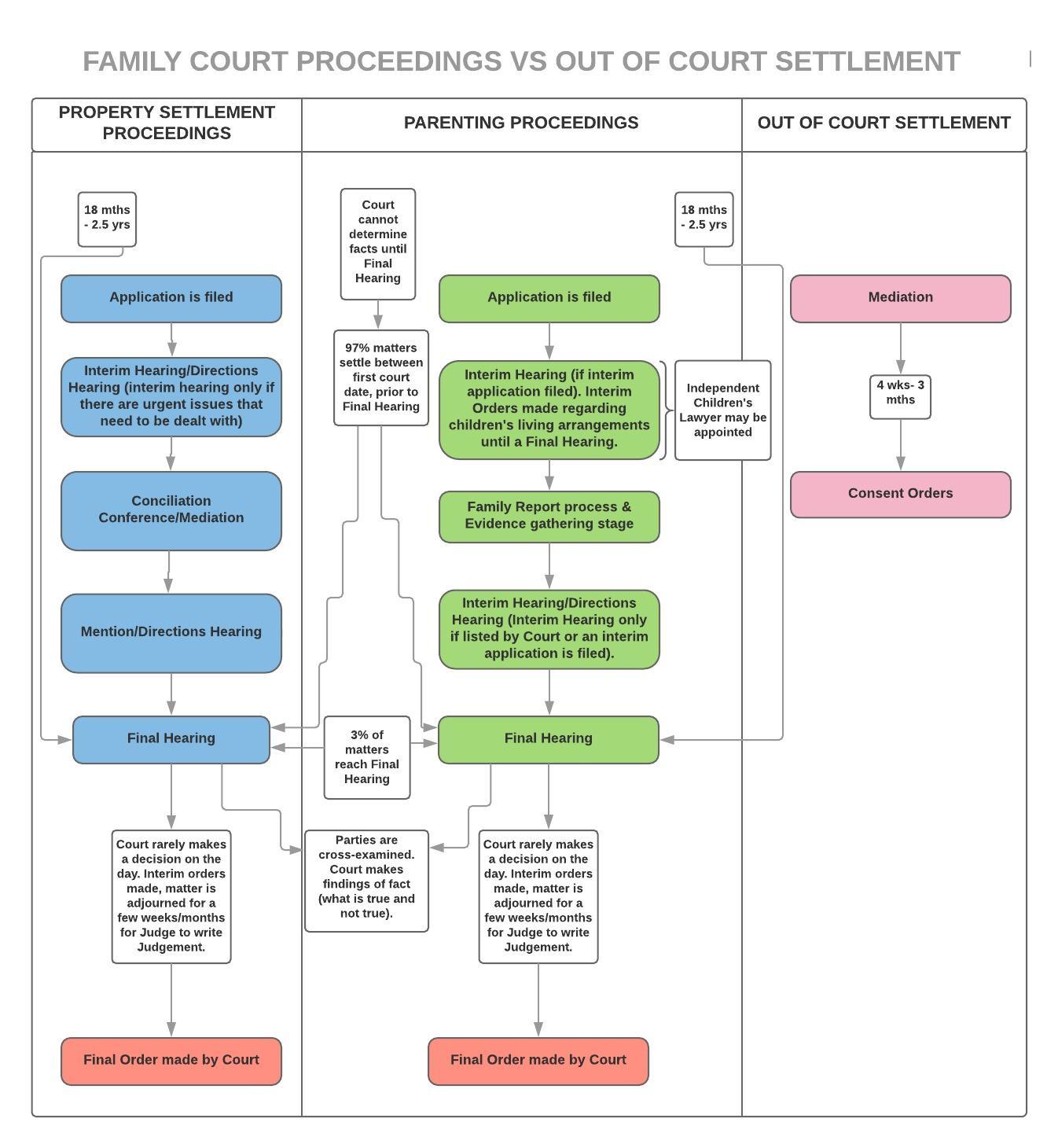The Case of Matenson
In the next installment of Courtney’s Cases, we discuss the case of Matenson [2018] FamCAFC 133 where the Judge avoided determining the issues presented by the parties at the interim hearing, resulting in the orders being appealed.
Court Procedure in Interim Hearings with busy duty lists
An interim hearing is the first and one of the most important court dates you will attend. Judges have between 10 and 30 (sometimes more) cases in their duty list, with a large number of cases not settling and seeking an Interim Hearing from a Judge. Often one interim hearing can take between 30 minutes and 1 hour. With only 6 hours in a day to determine all those cases, this leaves the Judges with a very difficult task where there are complex issues, conflicting assertions in relation to the facts, and very little matters which are agreed between the parties. At an Interim Hearing, none of the evidence alleged by the parties can be tested (i.e. the Judge cant determine what is true and what is not) and so their task in crafting orders, in the best interests of the children pending a Trial (where the facts can be tested), is very difficult.
Nonetheless, a Judge is required to undertake this task, and assess the case, as best as they can, so interim orders can be made which enable the children to have a meaningful relationship with his or her parents, pending a Trial, provided they are protected from harm in doing so.
In making their decision, given the Judge is not able to determine the facts of the case, the Judge therefore places a lot weight upon the agreed facts and any independent evidence available.
Courtney’s Cases: Matenson
In the case of Matenson, the unrepresented Father appealed a decision made by the Judge who had dismissed his interim application for parenting issues.
Murphy J sitting in the appellate jurisdiction of the Family Court, allowed the appeal of the unrepresented Father.
The Children the subject of the application were aged 16, 13 and 11.
The Father’s concern was the lapse of time since he has seen his children despite an earlier order granting time, which he alleged the unrepresented mother was contravening.
Despite all parties (the Father, the Mother and the Independent Children’s Lawyer) seeking some time, (the father seeking the removal of supervision, and the mother and ICL seeking an order that the eldest child see the father as she wished but that the other children spend some time with him), the Court dismissed all interim applications and set the matter down for Trial in 10 months.
There was also a Family Report available to the Judge at the time of the Interim Hearing which made certain recommendations as to the time that the Father would spend with the children.
In allowing the appeal, Justice Murphy said:
“in the Federal Circuit Court at least, interim proceedings are almost always conducted within huge lists where large numbers of cases seek a hearing. The convoluted and conflicting assertions common to many of those cases cannot be tested. The exquisite difficulties in fashioning interim orders in the best interests of the subject child or children pending a trial (which those same scarce resources dictate may be significantly delayed) is, or should be obvious.
Yet it is a task which, with all its inherent difficulties, must be confronted not avoided. The jurisdiction of the court has been properly invoked and it must be exercised, albeit in significantly less than ideal circumstances…
At no time did Her Honour identify the competing proposals of the parties or identify the issues necessary for her determination. Her Honour makes no reference to matters which she considered uncontentious. Indeed the references to any evidence are…extremely sparse..The Family report…was alluded to but Her Honour did not refer to any particular aspects of that (albeit untested) evidence.”
Courtney’s Cases – Moral of the story
Whilst Judges have a difficult task in having to craft interim orders in the best interests of the children in the face of busy duty lists, and without the benefit of being able to test the evidence (i.e. determine what facts are true and what are not), a Judge is still required to make a decision in relation to your matter, despite the inherent difficulties in doing so.
In the face of conflicting evidence, it is highly likely a Judge hearing your matter will be quite conservative in their reasons for making the orders they make, but nonetheless, they are required to make a decision and provide reasons for that, based on the evidence before them.
Have you separated or recently separated and need help with a parenting or property settlement dispute?
Contact us today to book a reduced rate, one hour, confidential consultation with one of our family law experts to have a confidential discussion about your individual circumstances.
Also check out our diagram below for a summary of how the family court process works.


